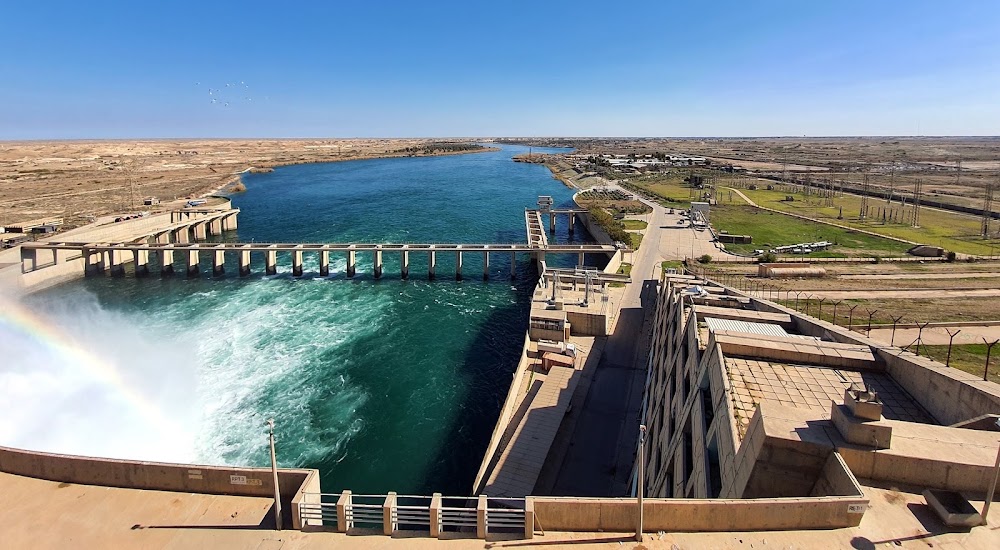Al-Anbar Historical Sites (المواقع التاريخية في الأنبار)
Overview
Al-Anbar, a region rich in historical and cultural significance, is nestled in western Iraq. Renowned for its expansive deserts and the majestic Euphrates River, Al-Anbar is dotted with numerous historical sites that draw tourists from around the globe. Let’s embark on a journey to explore the history, importance, and captivating features of some of these remarkable locations.
Hatra: The Ancient Fortified City
One of the most prominent historical sites in Al-Anbar is the ancient city of Hatra, a UNESCO World Heritage site that dates back to the third century BC. Once the capital of the first Arab Kingdom, Hatra is celebrated for its well-preserved ruins, showcasing a unique blend of Greco-Roman and Eastern architectural influences. Visitors can marvel at the city’s imposing walls, which stretch up to 2 kilometers in circumference, and its grand temples that bear witness to its former splendor. Notably, the Temple of the Sun, adorned with massive pillars and intricate carvings, is a must-see attraction that highlights the city’s religious significance during its peak.
Hit: A Blend of Nature and Heritage
Next, we travel to the city of Hit, which offers a delightful mix of natural beauty and ancient heritage. As one of the oldest continuously inhabited cities in the world, Hit boasts a history that spans over 4,000 years. The ancient town is famous for its sulfur springs, which were utilized by the Assyrians over 3,000 years ago and continue to attract visitors today. Perched on a hill overlooking the Euphrates, the iconic Castle of Hit provides stunning panoramic views of the river and its surrounding landscape. Dating back to the Abbasid period, this castle has played a crucial role as a strategic military site throughout history, offering insight into the region's tumultuous past.
Al-Qaim: A Gateway to Ancient Trade Routes
Located near the Syrian border, Al-Qaim is yet another site of historical interest. This area was significant during the Assyrian Empire and later during the rise of Islam. Al-Qaim’s proximity to ancient trading routes and the remnants of caravanserais—resting places for traders and travelers—make it a fascinating location to explore. These structures provide a glimpse into the lives of ancient merchants and underscore Al-Anbar's role as a pivotal trade hub.
Anah: A Town of Early Islamic Significance
For those intrigued by the early Islamic period, the town of Anah, situated alongside the Euphrates, holds great significance. With roots tracing back to the Babylonian era, Anah served as an important center during the early Islamic caliphates and is frequently mentioned in historical texts. The town's ruins, including ancient minarets and fortifications, reflect its historical importance and architectural ingenuity. Anah's strategic location along the river made it a vital point for waterborne trade and cultural exchange.
Archaeological Treasures of Al-Anbar
In addition to these historical sites, Al-Anbar is replete with archaeological locations that shed light on prehistoric eras. Excavations have uncovered artifacts from the Neolithic period, indicating that the region has been home to human civilizations for thousands of years. Pottery, tools, and remnants of ancient settlements highlight the long-standing human presence and the evolution of early societies in this historically rich area.
Visiting Al-Anbar offers a unique opportunity to explore these historical treasures while immersing oneself in the vibrant cultural tapestry of Iraq. The region's traditional cuisine, warm hospitality, and lively local customs enhance the experience of exploring these ancient sites. Tourists are often welcomed with open arms by local communities eager to share their heritage and stories.
It’s important to stay informed about the current security situation in Al-Anbar, as occasional unrest and political instability can occur. For a safe and enriching experience, travelers should consider planning their visits with knowledgeable guides and reputable tour operators.
In conclusion, Al-Anbar captivates visitors with its wealth of historical sites, from the ancient city of Hatra to the historic town of Hit and the remnants of Anah. Each location tells a fascinating story that reflects the region's diverse cultures and civilizations that once flourished along the banks of the Euphrates. For history enthusiasts and curious travelers alike, Al-Anbar promises a journey through time, filled with awe-inspiring landmarks and unforgettable experiences.






